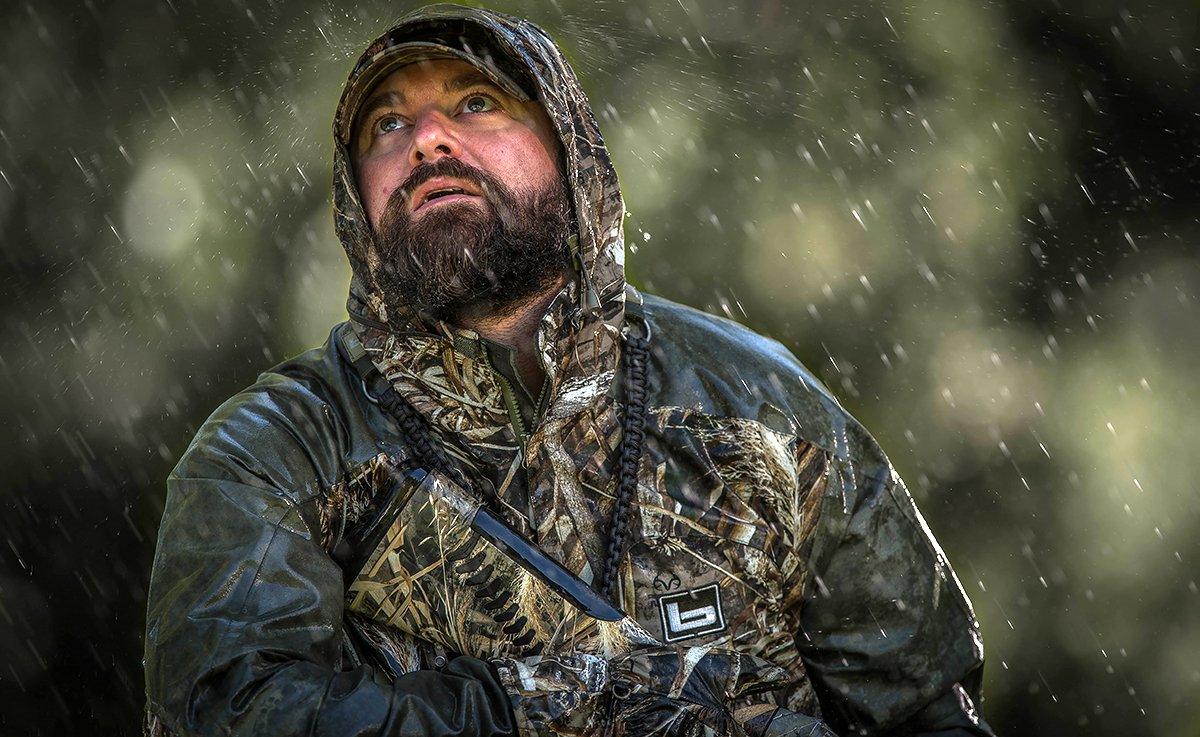Waterfowl pros discuss dreaded weather woes and other factors that kill hunts
The old saying holds true: The best time to hunt ducks is when you can go. If you wait for perfect conditions, you probably won't hunt much.
Still, experienced waterfowlers recognize that the elements sometimes conspire to make some days far tougher than others. What are the most difficult conditions? That's up for debate. However, duck hunting experts across the flyways have some clear opinions.
Cloudy Skies
Jeremy Dersham, owner of Ridge and River Running Outfitters, guides hunters in southern Wisconsin and the canvasback-rich Pool 9 of the Mississippi River. And he's not a fan of the misconception about ducky weather.
I've heard it a million times — clients asking for clouds, and then we should kill ducks, he said. No. Clouds normally stagnate a hunt. Birds can pick up everything when it comes to cloud cover. We have to make sure every little piece of gear is extra natural when gray days are in the forecast.
Chad Belding, host of The Fowl Life, agreed, saying clouds hamper success whether you're hunting timber, open water, or ag fields.
When the sun isn't shining, duck hunters have to be particularly detailed in their hide and concealment, he said. When skies are gray and overcast, we spend extra time making sure we disappear from the birds. This will mean backing off a couple of rows of trees from your hole if your hunting flooded timber, or spending extra time covering your blind with natural vegetation if you're hunting river bottoms, dry fields, or marshes.
Temperature Extremes
Veteran guide Cooper Olmstead of Habitat Flats said unseasonably warm weather typically suppresses duck movement during much of the day, so hunters must take advantage of brief windows at dawn and dusk.
Hunt the early morning and later-afternoon hours — the coolest part of the days, he said. Avoid the warmest part of the day.
Conversely, extremely cold weather can also be difficult, but hunters just have to deal with it.
Birds will be most active once the temperature starts to climb, he said. That can be during late morning or early afternoon. Make sure to be in the blind once it does start to rise, as they will start moving, and you don't want to miss it.
(Don't Miss: 4 Reasons You're Not Killing Mallards in Dry Fields)
Calm Days
Wind often prompts ducks and geese to move and helps make a decoy spread come alive with movement. Calm conditions let birds loaf anywhere on big water and make decoys look like… well, decoys. When that occurs, Tony Vandemore of Habitat Flats goes back to fundamentals.
You have you make sure your hide is very good, and bring a jerk string, he said. Extra brush on a blind throughout the season never hurts, either.
Olmstead agreed.
This can be very frustrating, he said. The best thing is to try different things throughout a hunt to see what works best for you on that day. Usually, smaller, more realistic spreads with a jerk cord and light to little calling work best. Make sure your hide is extremely good. With no wind, they circle and circle and can pick you apart, so that's why the more realistic you can be and look the better.
Rainy-Day Blues
Dersham said moderate to heavy rains also create tough hunting, despite what some folks might think.
Birds normally stay grounded when it's pouring out, but normally it doesn't pour all day, he said. Rather, you get breaks, and it can get good. I had clients a few years back state they'd been watching the forecast for their hunt weeks in advance and weren't anticipating good success due to clear skies and sunshine. They killed limits all three days. Sunshine and wind are what I'm looking for. The sun can create glares and shadows, and when used correctly, it becomes a duck hunter's best friend. We had a good wind — 10 to 20 mph — during those three days, also creating great conditions.
The Human Factor
No secrets here: Heavy hunting pressure can really limit success. When the masses hit the marsh, Olmstead tries to stand out from the crowd.
This is something that can become very frustrating but is completely out of your control, he said. The best thing to do is pay attention to others around you, and try and set yourself apart. If other groups are hunting large spreads, run smaller spreads. If they are running small spreads, run larger spreads. Try no spinners versus two spinners or more... loud calling versus little to no calling. Anything you can do to set yourself apart from the masses will make you more successful.
(Don't Miss: How to Beat a Shooting Slump)
Click here for more Realtree waterfowl hunting content. And check us out on Facebook.








